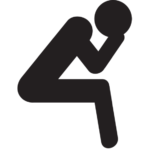MENTAL HEALTH CONDITIONS

Anxiety and panic attacks
When a person is in a stressful situation, the body responds to the situation in the form of anxiety. Anxiety creates fearful situations that make a person nervous and overthink. Most people think anxiety is normal, but it is not. It is a genuine mental condition that needs treatment. Anxiety can further lead to other mental health conditions like OCD, panic attacks. Panic attacks are quite dangerous as they affect the normal functioning of the body. The attack is a sudden episode that takes place out of fear, stress, or anxiety.

Depression
Everyone experiences sadness and uneasiness at some point in their lives. However, depression is more intense and lasts for a longer period. Depression interferes with a person’s ability to engage in daily activities. Some symptoms of depression are loss of interest in the activities you once cherished, colossal changes in appetite, sleeping disorders, fatigue, feeling worthless or hopeless, the problem with concentration, and, in some cases, suicidal thoughts.

ADHD
ADHD or ADD is a common mental condition. Mostly seen in kids, it is a condition when a person is unable to concentrate. People suffering from ADHD have difficulty focusing for a long period. Such people get distracted easily or start feeling uneasy if they try to stay focused. This mental condition can make the person restless and rude. A person suffering from ADHD forms impulsive behavior. Sometimes they may harm themselves or others because of such conduct.

Bipolar disorder
Bipolar disorder also known as manic depression is a mental health condition that causes extreme mood swings that includes emotional highs and lows. These mood swings can affect sleep, behavior, judgment, and also the ability to think clearly. When the person becomes depressed, he/she may lose interest, feel sad or hopeless, and when the mood shifts, he/she may feel full of energy or unusually irritable.

Eating disorder
Eating Disorders are more of life-threatening illnesses that impact both the psychological mind and physical body. They are described as unsafe eating practices that are joined and inspired by unfortunate convictions and desires. Such people are always concerned about eating and gaining weight. Generally, individuals with eating disorders face issues that include accepting and feeling good about themselves. Such people further think of themselves as fat and ugly because of their body size and shape.

Sleep disorder/ Insomnia
A sleep disorder is a condition where a person has quite irregular sleeping patterns. He/she might be sleeping for too long or not sleeping at all. Some sleep disorders start to interfere with the regular physical, mental, social, and emotional functioning of the human body. Disruptions in sleep can be caused by a variety of issues like night terrors. The most common sleep disorder is insomnia, in which a person suffers from difficulty falling asleep with no known reason. Sleep disorder is common in both children and adults.

OCD
OCD highlights an example of undesirable thoughts and fears that lead you to do repetitive behaviors. People suffering from OCD obsessions encounter such logic, specifically when they are trying to do something else. To overcome such obsessions people tend to form looped behavior and follow specific rituals out of angst. Examples of OCD obsession signs and symptoms include:
- Doubts that you have done an activity like, did they receive the mail on time?
- Despair of acquiring infections by touching objects
- Repeating a prayer, phrase, or word
- Rechecking 4-5 times only to be sure!

Personality disorder
Personality is determined by the characteristic features or patterns of thinking, feeling, and behavior that make up who we are and how we feel about ourselves. For many people, this remains consistent across situations and time. However, some individuals may experience difficulties in how they feel or think about themselves and others. An individual with PD may have problems with:
- Making or maintaining relationships
- Managing their emotions
- Controlling their behavior
- Coping with life and feelings

Post-traumatic stress disorder
Post-traumatic stress disorder (PTSD) is a psychological reaction when one has experienced a stressful, traumatic, or shocking event. It might be a car crash, an earthquake, a rape, or an attack.
Living through PTSD can be a staggering, terrifying, secluding, and crippling experience. People with PTSD may feel intense fear. They may feelas if their world has fallen apart, and nothing makes sense. If not treated, PTSD can lead to depression and suicidal thoughts.

Psychosis
Individuals with psychosis experience a modified feeling of the real world. They experience issues with how they decipher their general surroundings. They may encounter fantasies, for example, hearing voices that are not there, or daydreams where they have deceptions about themselves or their general surroundings. Psychosis may be caused by schizophrenia, bipolar disorder, severe depression, drug abuse, or less commonly in response to a stressful event.

Schizoaffective disorder
A person suffering from schizoaffective disorder might experience episodes that are combinations of both psychotic and bipolar disorder symptoms. These symptoms last at least two weeks. Schizoaffective disorder can cause a loss of contact with reality and mood problems. There can be a wide range of symptoms that can occur, and for each person, the experience can be unique. Schizoaffective disorder is tough to diagnose, as it is a mix of other mental health conditions.

Schizophrenia
Schizophrenia is a severe brain illness. Sometimes people suffering from this disorder do not make sense as they talk, and men often develop symptoms at a younger age as compared to women. People suffering from this disorder might hear voices, or see people, or think of bad things happening to them. No one is sure what causes schizophrenia. Medication can help control a large number of symptoms. You may need to attempt various medications to see which works best.

Self-harm
Self-harm or non-suicidal self-injury (NSSI) is an impulse control disorder that includes the deliberate destruction of a person’s body without suicidal intent. Tragically, while self-injury may bring a feeling of peace and well-being immediately after the act, this is usually followed by intense guilt and shame. Most often, people who engage in self-harm target the body parts that can be hidden under clothing. Some methods followed by people to self-harm are:
- Making cuts on different parts of the body
- Breaking bones
- Hitting or punching oneself
- Pulling out hair

Suicidal feelings
Suicidal feelings are the feelings that make a person want to take their own life. There are two types of suicidal feelings: passive and active. Active suicidal ideation is not only about thinking of suicide but having a real intent to commit suicide and plan how to do it. Warning signs that your loved one is thinking about or contemplating suicide include:
- Isolating yourself from your loved ones
- Feeling hopeless or trapped
- Talking about death or suicide
- Giving away possessions
- An increase in substance use

Autism
Autism spectrum disorder (ASD) is a developmental disability. It causes colossal challenges socially, communicably, and behaviorally in a person. People with Autism look just like normal people, but their learning and thinking power can be seriously challenged. They live in a loop and might not want to change their daily activities. Signs of ASD begin during early childhood and might last throughout a person’s life.

Social phobia
Social phobia is an anxiety disorder that does not allow a person to respond fitly to a public situation. These situations may include speaking in public, attending social gatherings, eating with other people, or even working or studying with others. People with this issue dread being mortified or humiliated at social events. Such people turn out to be strongly restless with a fast pulse and different indications of autonomic excitement.

Trypophobia
Although strangebut quite common, this mental condition is where a person has a fear or dislike of holes. People suffering from this disorder find small holes uncomfortable and uneasy. It is quite common, and one in every six people feels this way.
Triggers can be holes, clusters of small holes, patterns that repeat over and over in bunch or groups, and others.

Agoraphobia
A large number of us may become discontented when we need to take public transportation or explore a bustling market. However, a few people experience bizarre dread or stress when they experience public spaces. They may freeze when they need to remain in line or discover their hearts, hustling when they detect their seat in a packed cinema. This dread is some of the time called agoraphobia. When a person with agoraphobia is forced to encounter a crowded place, he or she may experience intense anxiety and symptoms such as sweating, increased heart rate, trouble breathing, nausea, dizziness, chest pain, and trembling.

Hypochondriac
It is a condition where a person thinks there’s something seriously wrong with him; however, when their doctor runs tests, nothing comes wrong. Such people still do not feel satisfied and keep on consulting different doctors. Such people remain in constant fear and take even minor illness symptoms very seriously.
